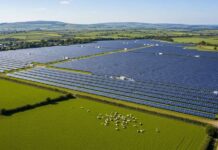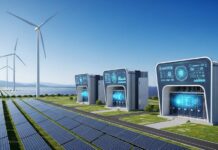Less Carbon. More Electrons: The world’s premium utility meeting, for energy leaders committed to net zero: 21 – 25 March, 2022, Online
Delivering the Utility of the Future
- The IEA estimates that 29% of global electricity comes from renewable sources, with projections set on an upward trajectory. How can utility companies disrupt traditional markets through electrification and swap carbon for electrons?
- Reuters Events: Utility Transition 2022 deep dives into the decarbonisation of the grid, explores how data can be harnessed to inform meaningful decision making, and delivers a definitive guide to digital utility 4.0.
- Run as part of our flagship energy transition program, we look forward to welcoming global utility leaders to learn, engage and action meaningful change. Join us as we chart the path to net zero power and deliver the utility of future, today.
 Defining Themes for Utility Transition 2022
Defining Themes for Utility Transition 2022
Grid Modernisation & Integration: According to IRENA, aligning with the Paris objectives will require $26 trillion of cumulative investment in electrification and infrastructure through to 2050. How can we upgrade existing infrastructure, ensure more efficient transmission, and deliver a grid fit for the energy transition?
Digital Transformation & Utility 4.0: Explore how utility companies are implementing digital by design strategies, ensuring accurate and timely monitoring, and harnessing the power of the digital twin. With utility 4.0 upon us, how can companies turn the avalanche of data into meaningful information to inform business decision making?
Clean Grid Technology: How can the energy sector develop new technologies at commercial scale, whilst ensuring cost competitiveness with existing energy sources? Integrating solar, wind, storage, EV and other new technologies into a diversified grid will be critical for a successful energy transition
Cybersecurity & Connected Workforce: Increased engagement with climate issues, the emergence of prosumers, and technologies such as smart meters have created a new wave of engaged and empowered workers and consumers. How can both harness the potential of new engagement in the sector, whilst countering potential threats?
































